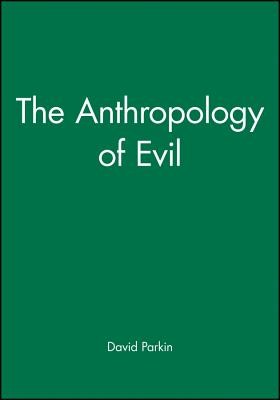
- Išsiųsime per 12–18 d.d.
- Leidėjas: Blackwell Publishers
- ISBN-10: 0631154329
- ISBN-13: 9780631154327
- Formatas: 15.5 x 22.9 x 1.8 cm, minkšti viršeliai
- Kalba: Anglų
- Extra -15 % nuolaida šiai knygai su kodu: ENG15
The Anthropology of Evil (el. knyga) (skaityta knyga) | knygos.lt
Atsiliepimai
Aprašymas
Evil may be said to be shadowy, mysterious, covert, and associated with night, darkness, secrecy. It is a force acting to destroy the integrity, happiness and welfare of 'normal' society. It is at once the cause and the explanation of misfortune, of the wretchedness of human existence, and of our own individual wrongdoing. That, at any rate, is substantially the western Christianity (and pre-Christian) view.
Yet the different societies have opted for very different sets of explanations, which have themselves evolved in radically contrasting ways. There are societies, for example, in which there is no concept of evil. The Anthropology of Evil discusses the problem in the context of different societies and religions- Christian, Confucian, Buddhist, Hindu, and Muslim for example. It also provides unusual perspectives on questions such as the nature of innocence, the root of evil, the notion of individual malevolence and even whether God is evil.
Much has bee written on evil, notably by historians, theologians and philosophers but very little by anthropologists: this book shows how distinctive and revealing their contribution can be.
EXTRA 15 % nuolaida su kodu: ENG15
Akcija baigiasi už 3d.20:33:19
Nuolaidos kodas galioja perkant nuo 10 €. Nuolaidos nesumuojamos.

- Leidėjas: Blackwell Publishers
- ISBN-10: 0631154329
- ISBN-13: 9780631154327
- Formatas: 15.5 x 22.9 x 1.8 cm, minkšti viršeliai
- Kalba: Anglų Anglų
Evil may be said to be shadowy, mysterious, covert, and associated with night, darkness, secrecy. It is a force acting to destroy the integrity, happiness and welfare of 'normal' society. It is at once the cause and the explanation of misfortune, of the wretchedness of human existence, and of our own individual wrongdoing. That, at any rate, is substantially the western Christianity (and pre-Christian) view.
Yet the different societies have opted for very different sets of explanations, which have themselves evolved in radically contrasting ways. There are societies, for example, in which there is no concept of evil. The Anthropology of Evil discusses the problem in the context of different societies and religions- Christian, Confucian, Buddhist, Hindu, and Muslim for example. It also provides unusual perspectives on questions such as the nature of innocence, the root of evil, the notion of individual malevolence and even whether God is evil.
Much has bee written on evil, notably by historians, theologians and philosophers but very little by anthropologists: this book shows how distinctive and revealing their contribution can be.


Atsiliepimai